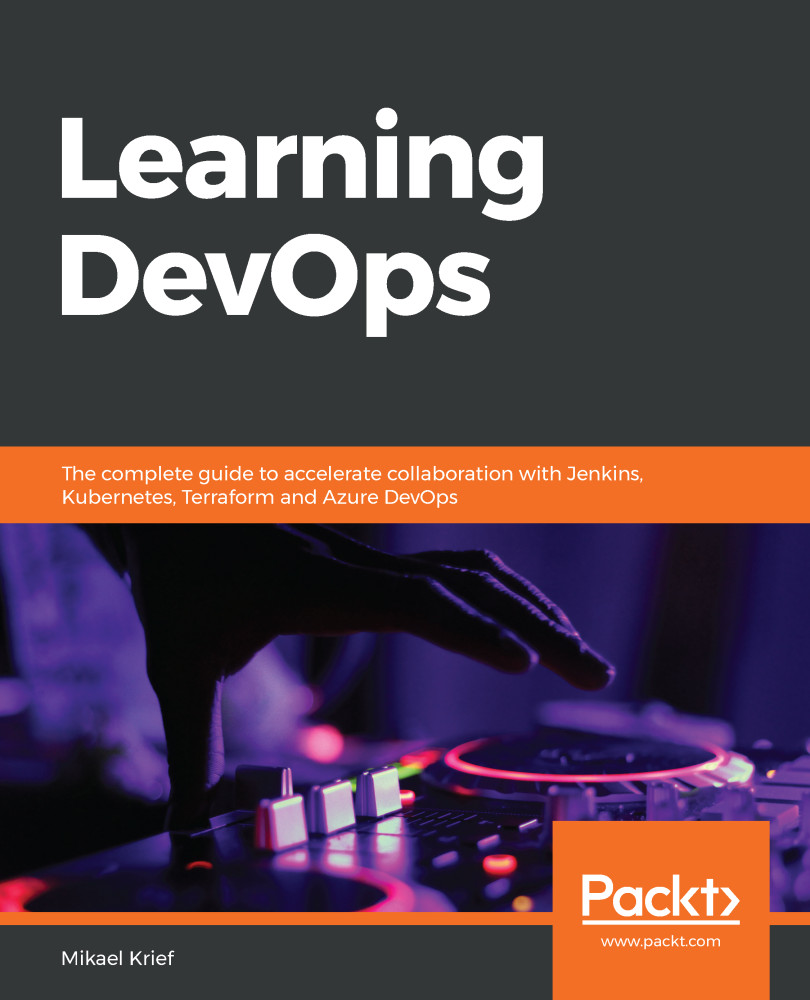-
Book Overview & Buying

-
Table Of Contents
-
Feedback & Rating

Learning DevOps
By :

Learning DevOps
By:
Overview of this book
The implementation of DevOps processes requires the efficient use of various tools, and the choice of these tools is crucial for the sustainability of projects and collaboration between development (Dev) and operations (Ops). This book presents the different patterns and tools that you can use to provision and configure an infrastructure in the cloud. You'll begin by understanding DevOps culture, the application of DevOps in cloud infrastructure, provisioning with Terraform, configuration with Ansible, and image building with Packer. You'll then be taken through source code versioning with Git and the construction of a DevOps CI/CD pipeline using Jenkins, GitLab CI, and Azure Pipelines. This DevOps handbook will also guide you in containerizing and deploying your applications with Docker and Kubernetes. You'll learn how to reduce deployment downtime with blue-green deployment and the feature flags technique, and study DevOps practices for open source projects. Finally, you'll grasp some best practices for reducing the overall application lead time to ensure faster time to market.
By the end of this book, you'll have built a solid foundation in DevOps, and developed the skills necessary to enhance a traditional software delivery process using modern software delivery tools and techniques
Table of Contents (23 chapters)
Preface
 Free Chapter
Free Chapter
Section 1: DevOps and Infrastructure as Code
DevOps Culture and Practices
Provisioning Cloud Infrastructure with Terraform
Using Ansible for Configuring IaaS Infrastructure
Optimizing Infrastructure Deployment with Packer
Section 2: DevOps CI/CD Pipeline
Managing Your Source Code with Git
Continuous Integration and Continuous Delivery
Section 3: Containerized Applications with Docker and Kubernetes
Containerizing Your Application with Docker
Managing Containers Effectively with Kubernetes
Section 4: Testing Your Application
Testing APIs with Postman
Static Code Analysis with SonarQube
Security and Performance Tests
Section 5: Taking DevOps Further
Security in the DevOps Process with DevSecOps
Reducing Deployment Downtime
DevOps for Open Source Projects
DevOps Best Practices
Assessments
Other Books You May Enjoy
Customer Reviews

